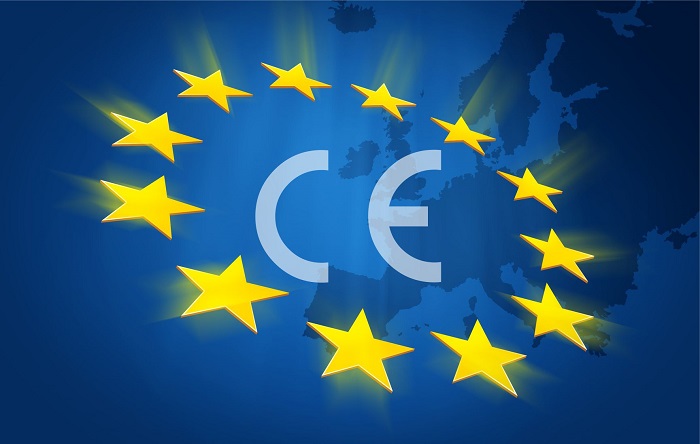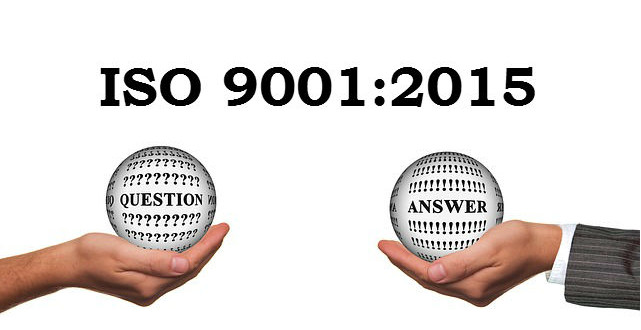
Common questions of CE MARKING
The word "CE" in CE label must be appropriate for the prescribed rate, can be directly labeled on products or packaging. Regardless of the size of "CE" symbol,....
ISO 9000 is a set of standards of quality management system issued by International Organization for Standardization. ISO 9000 is applied when organizations or enterprises desire to show their abilities concerning provision of products which meet customers' demands, regulations and gain tremendous satisfaction of customers.

The set of ISO 9000 standards embraces 4 basic standards:
ISO 9001:2008: Quality management system - Requirements.
ISO 9001:2005: Quality management system - Basis and vocabulary.
ISO 9004:2009 Sustainable development management of organizations.
ISO 9001:2002: Quality management system - Basis and vocabulary.
ISO 9001:2008 is a set of standards which sets down requirements for quality management system for use in establishment and assessment of quality management systems in organizations/ enterprises.
Organizations or enterprises want to apply ISO with a view to improving work quality and effectiveness. Establishment of an effective quality management system facilitates businesses' management.
Due to statutory requirements (applicable to a number of fields, for example, Prime Minister's Decision No. 144/2006/QĐ-TTg/QĐ-TTg on June 20th, 2006, on the application of ISO 9001: 2000 at state administrative agencies); inquiries from customers and/or stakeholders.
Application and certification of ISO 9000 help to promote enterprises' images and build up their reputation.
The set of ISO 9001:2015 standards was developed to apply to all types of organizations and businesses regardless of scope or their fields.
- Helps to raise public awareness of staff of quality improvement and satisfaction of customers.
- Enables enterprises to develop work culture through establishment and application of standard processes to maintain work control; then helps enterprises to avoid risks and improve quality and customers' satisfaction.
Demands for following inappropriateness, observe customers' satisfaction, internal assessment create opportunities to regularly take corrective, preventive and improvement actions to “TODAY BETTER THAN YESTERDAY AND TOMORROW BETTER THAN TODAY ”
Environmental management system not only helps to clearly define rights and responsibilities of each person in organizations, then contribute to development of ransparent, professional and effective workplaces.
An effective quality management system ensure the ability to provide products and services to meet customers' demands.
ISO 9001:2015 helps to ensure that provision of products which meet standard's requirements of customers in a sustainable way and then gain much satisfaction of products. Therefore, it is necessary to develop and apply a quality management system for all processes and personnel related to quality assurance from receipt of customer requirements, design, material purchase, production / service provision, delivery; supporting stages such as information receipt, pre-audit, maintenance of equipment, machine...
The answer to question "How much time is needed to build and certify quality management system according to ISO 9001: 2015?" depends on some factors, especially"
Determination of board of leaders as well as arrangement of resources concerning establishment of quality management system.
Current status and degree of responsiveness of organizations / businesses compared to requirements of ISO 9001: 2015.
Based on the size of system and complexity of processes (applying multiple locations, risky, difficult-to-control work will take longer.
Cognitive skills of staff. People who directly engage in stablishment of an effective quality management system.
The average time to build and certify ISO 9001: 2015 is from 8-10 months. At least 3 months if a short period.
ISO 9001:2015 is a basic set of standards which lays foundation for standards later. Some quality management systems standards for specialized fields that businesses can apply to build a quality management system and apply for certificates:
(1) ISO/TS 16949 - Standards of quality management system for automotive industry.
(2) ISO 13485 - Standards of quality management system for medical devices.
(3) ISO/TS 16949 - Standards of quality management system for petroleum industry, petrochemical industry day and nature air.
(4) Medical laboratory - Main requirements of quality and competency (This standard is certified by Accreditation and Certification Bodies).
ISO 9001:2015 certificates issued by certification organizations will be valid within 3 years. During validity of certificates, certification bodies will conduct annual audits and supervision to ensure that quality management system is certified to comply with requirements of ISO 9001: 2015.
The monitoring cycle lasts from 6 months to 12 months. After 3 years, if you still want to certify, organizations must register for re-evaluation. Re-evaluation is the same as the first time. Re-evaluation is valid for 3 years.
More details:
Quality management system is only maintained and effectively improved on a regular basis when heads of organizations/ businesses pay attention to and take notice of quality management system to control and improve their quality.
To ensure maintenance and improvement, we need to performr at least some following problems well:
Well organize internal audits of quality management system to identify inadequacies and problems which need improvement in system.
Errors detected through internal assessment; in the process of supervising and operating work; feedbacks from customers should be done in accordance with the principle of correction - prevention to limit or prevent further errors;
When new staff or employees are recruited or assigned to new jobs, leaders should pay attention to pre-audit and guidance on the implementation of quality management system regulations;
Document system needs to be adjusted and improved in a timely manner. After 2 years, there is no need for adjustment or improvement of any document, the document is not seriously implemented or not really necessary;
Consideration of leaders in terms of effectiveness of annual quality management system should determine the level of effectiveness of system and work with a view to improving itself.
Periodic activities of quality management system such as internal and external assessment, consideration meetings of leaders, etc. should be added to overall plans of organizations/ businesses so as to fulfill these requirements.
In conclusion, KNA Cert hope that readers can get a brief overview and make a right decision through Q&A above when planning to deploy the latest ISO 9001 quality management system for your organizations and businesses.
